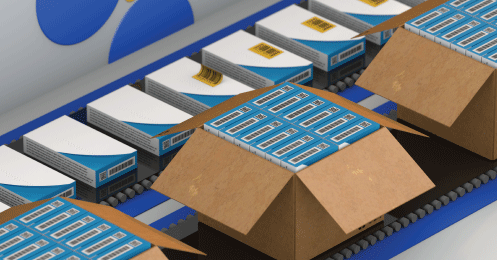It is one of the most important decisions you'll make as you select a new Inventory Management / Accounting / ERP software system: how best to migrate the data from your existing system. You can read about some best practices on ERP data migration here, but what makes your decision even more difficult is that, when different vendors talk about data migration, they're frequently not on the same page - or even in the same library!
It's important when reading a proposal or quote on migrating data from your old system, that you understand what is included, and what's excluded, as well as the methodology the vendor employs (read the fine print). If a prospective buyer compares a $15,000 estimate for complete data migration services with a quote of $2,500 for a "data import tool", that's actually worse than comparing apples with oranges - it's more like comparing a gourmet meal with a solitary french fry.
We can break the migration of ERP data down into 3 aspects:
- Extracting data from your existing system
- "Massaging" the data - making it suitable for use in the new system
- Moving the data into the new system
Many lowball quotes ignore step 2 altogether, and sometimes also put the onus on you to do step 1. That's fine in principle if you have the skill set. However, in practice that still leaves a number of issues to be faced, such as:
- How do you update the data already migrated on the day you switch over "live" to the new system? How quickly can you get that done when doing it yourself?
- How do you get the opening balances 0 unpaid payables, uncollected receivables, etc. - across at go-live?
- What if you want to change product codes, categories, etc.?
- Sales history and payment history - do you have the necessary skill set and knowledge to retrofit the old system's extracted data so that it works and makes sense in the new system? Will you be able to reprint an invoice?
Full disclosure: I have a bias here as my company always includes the full, complete and appropriate data migration path in our proposals. But that's because decades of experience in ERP Software implementation have taught us that, even if you think you don't want / need a full, complete data migration at the outset, there's a 90% probability that you'll change your mind during implementation, once you start working with the new system and start realizing the power of your data and how much you'd be sacrificing by not doing a proper job of migration.
So because we know you'll end up either spending the extra money to do it the right way, or regretting not having done so, we always make provision in our proposals for this. And so do many of our competitors - but not all of them.
Morals of the story: be sure that you understand what is included and excluded from a proposal or quote for data migration, and if you select the french fry, then be prepared to be very hungry after go-live.










